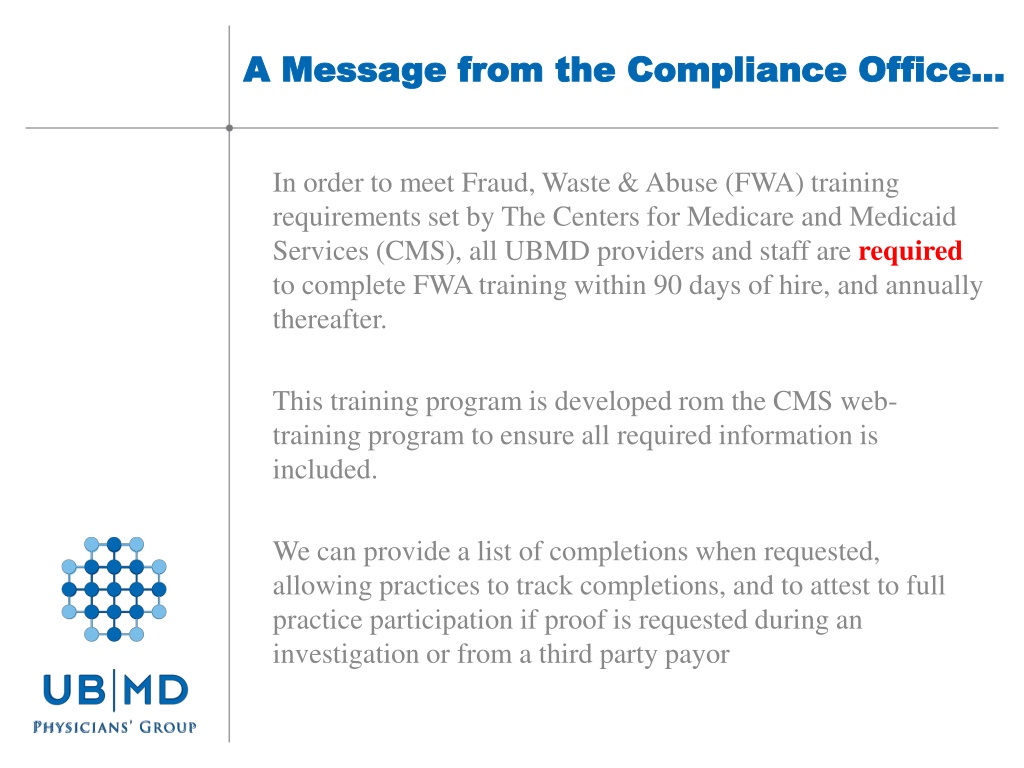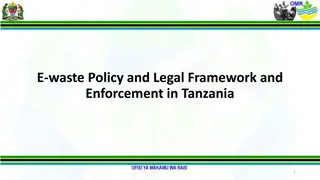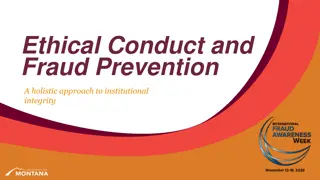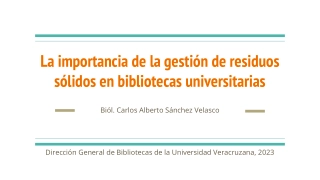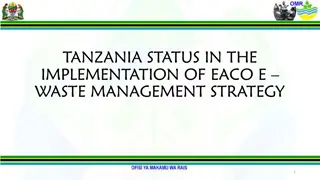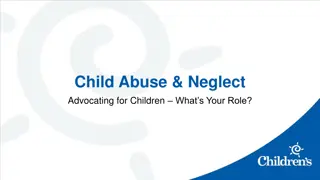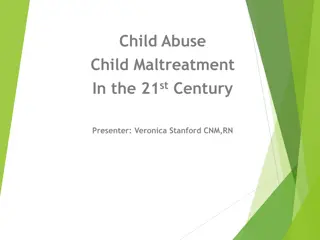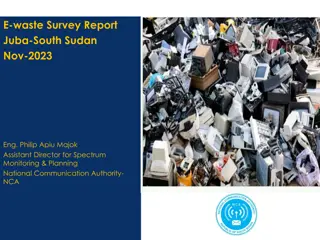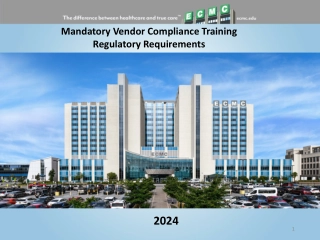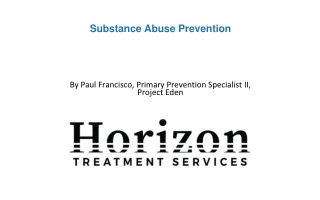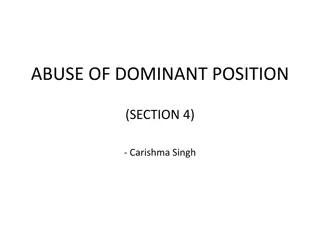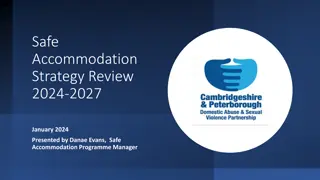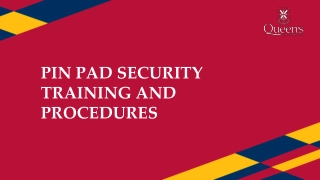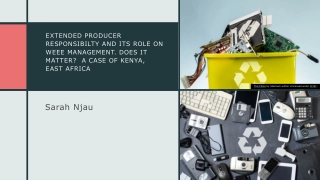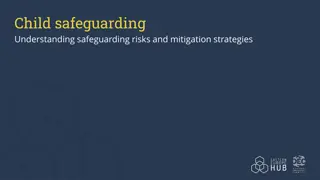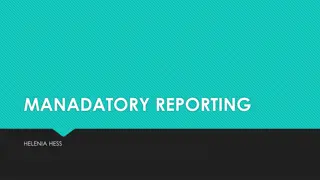Understanding Fraud, Waste & Abuse (FWA) Training Requirements
To maintain compliance with CMS guidelines, all UBMD providers and staff must complete Fraud, Waste & Abuse (FWA) training within 90 days of hire and annually thereafter. The training covers recognizing FWA, understanding laws and consequences, preventing FWA, reporting, and correcting issues. Failure to address FWA can lead to significant financial losses and penalties. By actively participating in FWA training, healthcare workers can help combat fraud, waste, and abuse in the industry.
Download Presentation
Please find below an Image/Link to download the presentation.
The content on the website is provided AS IS for your information and personal use only. It may not be sold, licensed, or shared on other websites without obtaining consent from the author. Download presentation by click this link. If you encounter any issues during the download, it is possible that the publisher has removed the file from their server.
Presentation Transcript
A A Message from the Compliance Office Message from the Compliance Office In order to meet Fraud, Waste & Abuse (FWA) training requirements set by The Centers for Medicare and Medicaid Services (CMS), all UBMD providers and staff are required to complete FWA training within 90 days of hire, and annually thereafter. This training program is developed rom the CMS web- training program to ensure all required information is included. We can provide a list of completions when requested, allowing practices to track completions, and to attest to full practice participation if proof is requested during an investigation or from a third party payor
Training Requirements Once training is completed, you should be able to correctly: Recognize & distinguish Fraud, Waste & Abuse; Recognize major laws & regulations pertaining to FWA; Understand potential consequences & penalties for violations; Identify & apply methods of preventing FWA; Report FWA; and Determine how to correct FWA.
Why do we need FWA training? To learn how to detect, correct and prevent FWA. Billions of dollars are spent every year due to fraud, waste & abuse. Estimates range from $68 billion - $230 billion of annual healthcare expenditure. As healthcare workers and UBMD employees, whether provider or administrative, we are ALL responsible for combatting fraud, waste & abuse. Any of our actions determined to be fraud, waste or abuse can lead to financial losses not only to government programs, but fines & penalties, including exclusion and imprisonment, to you and your practice plans as well. To be part of the solution.
What is FWA? Fraud Knowingly submitting false claims, or causing false claims to be submitted; Knowingly making misrepresentations of fact to get a federal health care payment; Knowingly soliciting, getting, offering, or paying remuneration (kickbacks, bribes, rebates) to induce or reward referrals for certain designated services reimbursed by federal health care programs; Knowingly and willfully executing, or attempting to execute, a scheme or artifice to defraud ANY health care benefit program or to obtain, by means of false or fraudulent pretenses, representations, or promises, any of the money or property owned by, or under custody or control of, any health care benefit program; Requires willingness, intent, knowledge. Waste Practices that directly or indirectly results in unnecessary costs to the Medicare Program, such as overusing services. Generally not caused by criminally negligent actions, but by misuse of resources. Abuse Practices that directly or indirectly result in unnecessary costs to the Medicare Program. Any practice that doesn t provide medically necessary services or doesn t meet professionally recognized standards of care.
Examples Fraud Knowingly billing for services of higher complexity than services actually provided or documented. Knowingly billing or services not provided. Knowingly ordering medically unnecessary patient items or services. Paying for federal health care program patient referrals. Billing Medicare for appointments patients don t keep. Knowingly altering claims forms, medical records, or receipts to receive a higher payment. Waste Conducting excessive office visits or writing excessive prescriptions. Prescribing more medications than necessary to treat a specific condition. Ordering excessive lab tests. Abuse Billing unnecessary medical services. Charging excessively for services or supplies. Misusing codes on a claim, like upcoding or unbundling codes.
Difference Between Fraud, Waste & Abuse Intent is one of the primary differences. Fraud requires intent to obtain payment, and knowledge that the actions are wrong. Waste & Abuse may involve obtaining improper payment or creating unnecessary cost to Medicare Program, but do not require the same intent and knowledge. For the definitions of fraud, waste & abuse, refer to Chapter 21 Section 20 of the Medicare Managed Care Manual and Chapter 9 of the Prescription Drug Benefit Manual on the Centers for Medicare & Medicaid Services (CMS) website
Laws & Penalties To detect FWA, you need to know the laws: False Claims Act (FCA) Fraud Statute Anti-Kickback Statute (AKS) Civil Monetary Penalties Law (CMPL) Stark Statute (Physician Self-Referral Law) Exclusion Statute Health Insurance Portability and Accountability Act (HIPAA)
Laws & Penalties False Claims Act: A person is liable for civil provisions if they: Conspire to violate the FCA; Carry out other acts to obtain government property by misrepresentation; Conceal or improperly avoid or decrease an obligation to pay the government; Make or use a false record or statement supporting a false claim; Presents a false claim for payment or approval. Damages & Penalties Three times the government s damages cause by violator, plus a penalty. Example: A Florida Medicare Part C plan was informed by the outside company they hired that certain diagnosis codes previously submitted were undocumented and unsupported. They failed to report the unsupported diagnosis codes to Medicare. They agreed to pay $22.6 million to settle FCA allegations.
Laws & Penalties The Fraud Statute makes it a criminal offense to: Knowingly and willfully execute, or attempt to execute, a scheme to defraud any health care benefit program; Obtain by means of false or fraudulent pretenses, representations or promises, any money or property owned by or under control of any health care benefit plan; Conviction does not require proof that the violator had knowledge of the law or specific intent to violate the law. Damages & Penalties: Persons who knowingly make a false claim may be subject to criminal fines of up to $250,000, imprisonment for up to 20 years, or both. If the violations result in death the individual may be imprisoned for any term of years or for life. Example: A Pennsylvania pharmacist submitted Medicare claims for non-existent prescriptions & drugs not dispensed. Pleaded guilty to health care fraud. Received 15-month prison sentence and paid $166,000 in restitution.
Laws & Penalties The Anti-Kickback Statute (AKS): Makes it a crime to knowingly and willfully offer, pay, solicit or get any remuneration directly or indirectly to induce or reward patient referrals or business generation involving any item or service payable by a federal health care program. Safe harbors may apply. Damages & Penalties: Up to $25,000 fine, imprisonment for up to 5 years, or both. Example: Physician operating a Rhode Island pain management practice conspired to solicit and get kickbacks for prescribing a highly addictive version of Fentanyl. Reported patients had breakthrough cancer pain to secure insurance payments, and got $188,000 in speaker fee kickbacks from the manufacturer. Physician admitted the scheme cost Medicare and other payers more than $750,000. Physician was required to pay more than $750,000 in restitution.
Laws & Penalties The Stark Statute (Physician Self-Referral Law): Prohibits a physician from referring a patient to get certain designated health services (DHS) from a provider with whom a physician, or a physician s immediate family member has a financial relationship, unless an exception applies. Designated Health Services Clinical lab services Physical therapy, occupational therapy, and outpatient speech-language pathology services Radiology and other imaging services DME and supplies Parenteral and enteral nutrients, equipment, and supplies Prosthetics, orthotics, and supplies Home health services Outpatient prescription drugs Inpatient and outpatient hospital services.
Laws & Penalties The Stark Statute (Physician Self-Referral Law) (Continued) Damages & Penalties A penalty of approximately $25,000 can be imposed for each service provided. May also be a fine over $160,000 for entering into an unlawful arrangement or scheme. Example: A California hospital was ordered to pay more than $3.2 million to settle Stark Law violations for maintaining 97 finance relationships with physicians and physician groups outside the fair market value standards or that were improperly documented as exceptions.
Laws & Penalties Civil Monetary Penalties Law (CMP) authorizes the OIG to seek civil monetary penalties, and sometimes exclusions, for a variety of fraud violations, including: Arranging for an excluded individual s or entity s services or items; Failing to grant OIG timely access to records; Filing a claim you know or should know is for an item or service that wasn t provided as claimed, or is false or fraudulent; Filing a claim you know or should know is for an unpayable item or service; Violating the AKS; Violation the Medicare physician agreement; Providing false or misleading information expected to influence a discharge decision; Failing to provide an adequate medical screening exam for patients who present to a hospital ED with an emergency medical condition or in labor; Making false statements or misrepresentations on applications or contracts to participate in federal health care programs.
Laws & Penalties Civil Monetary Penalties Law (Continued) Damages & Penalties Vary based on the type of violation. Approximately $10,000-$50,000 per violation. Also subject to up to 3 times the amount claimed for each service or item, or up to 3 times the amount of remuneration offered, paid, solicited or received. Example: A California pharmacy and its owner agreed to pay over $1.3 million to settle allegations they submitted unsubstantiated Medicare Part D claims for brand name prescription drugs the pharmacy couldn t have dispensed based on inventory records.
Laws & Penalties Exclusion Statute: Require the OIG to exclude individuals & entities convicted of these criminal offenses from participating in all federal health care programs: Medicare or Medicaid fraud, and other offenses related to delivering Medicare or Medicaid items or services; Patient abuse or neglect; Felony convictions for other health care-related fraud, theft or other financial misconduct; and Felony convictions relating to unlawful manufacture, distribution, prescription or dispensing of controlled substances. The OIG also maintains the List of Excluded Individuals and Entities (LEIE website. The U.S. General Services Administration (GSA) administers the Excluded Parties List (EPLS), which enables various federal agencies, including the OIG, to take debarment actions. Both he LEIE and EPLS should be checked when looking for excluded individuals and entities as the lists are not the same.
Laws & Penalties Exclusion Statute (Continued) Excluded providers may not participate in the Federal health care programs for designated period. If you are excluded by the OIG, then Federal health care programs, including Medicare and Medicaid, will not pay for items or services that you furnish, order or prescribe. Excluded providers may not bill directly for treating Medicare and Medicaid patients, and an employer of a group practice may not bill for an excluded provider s services. At the end of an exclusion period, an excluded provider must seek reinstatement as reinstatement is not automatic. The UBMD Compliance Plan requires that all practices who bill government programs including, without limitation, Medicare and Medicaid, to check the names of all providers, staff and agents/vendors against exclusionary databases regularly. Check Monthly: o OIG-LEIE, GSA-SAM, and OMIG-List Check when a provider is credentialed or re-credentialed: o SDN List, NPPES, and Death Master
Laws & Penalties Health Insurance Portability & Accountability Act (HIPAA): Created greater access to health care insurance. Strengthened protection of privacy of health care data. Promoted standardization and efficiency in the health care industry. Deters unauthorized access to protected health information (PHI). Anyone with access to PHI, must comply with HIPAA. Damages & Penalties Violations may result in Civil Monetary Penalties. In some cases, criminal penalties may apply. Example: A former hospital employee pleaded guilty to criminal HIPAA charges after getting PHI with the intent to use it for personal gain. He was sentenced to 12 months and 1 day in prison.
What are your responsibilities? You play a vital role in preventing, detecting and reporting potential FWA, as well as Medicare non- compliance. You must comply with all applicable statutory, regulatory and other Medicare requirements, including adopting and using an effective compliance program. You have a duty to report any compliance concerns and suspected or actual violations of which you may be aware. You have a duty to follow the UBMD Compliance Plan (including the Code of Conduct), which articulates UBMD s commitment to standards of conduct and ethical rules of behavior.
What is a Whistleblower? A whistleblower is a person who exposes information or activity deemed illegal, dishonest or violate professional or clinical standards. Whistleblowers are protected from retaliation. Whistleblowers may receive at least 15% but not more than 30% of money collected in successful lawsuit.
How do you prevent FWA? Conduct yourself in an ethical manner at all times. Use and ensure accurate and timely data/billing. Comply with other payers rules. Verify all information provided to you. Be aware of suspicious activity. Keep up to date with FWA & UBMD policies and procedures, standards of conduct, laws, regulations, CMS guidance and UBMD Compliance Office guidance. Read and understand the UBMD Compliance Plan. Read Compliance Quarterly newsletters and other communications sent to you from the UBMD Compliance Office as they contain important information and updates. Complete all compliance and HIPAA training as required. Know that reported issues will be addressed.
Reporting FWA Everyone is required to report known or suspected instances of FWA. Retaliation for reporting compliance concerns in good faith will not be tolerated, regardless of whether or not a violation is found as a result of the initial report. This, and the process for reporting is clearly stated in the UBMD Compliance Plan. Any concerns should be reported to your supervisor and/or the UBMD Compliance office. Even if you suspect something is wrong but aren t sure if it is FWA, report it. Call or email the Compliance Office directly. Utilize the Compliance Hotline (716.888.4752) or Compliance Issue Reporting Form if you wish to remain anonymous. All reported concerns will be investigated by the Chief Compliance Officer.
Reporting FWA When reporting suspected FWA, you should include: Contact information for the source of information, suspects & witnesses; Details of the alleged FWA; Identification of specific Medicare rules allegedly violated; and The suspect s history of compliance, education training and communication within UBMD and other entities. If warranted, potentially fraudulent conduct must be reported to government authorities such as OIG, DOJ or CMS. Individuals or entities who wish to voluntarily disclose self-discovered potential fraud to OIG may do so under Self- Disclosure Protocol (SDP). Self-disclosure gives providers the opportunity to avoid the costs and disruptions associated with a government directed investigation and civil or administrative litigation. The UBMD Chief Compliance Officer should ALWAYS be contacted first regarding cases of self-disclosure.
Correcting FWA Once FWA is detected, it must promptly be corrected. Correcting the problem saves the government money, and ensures that you are in compliance with CMS requirements. Always consult the UBMD Chief Compliance Officer to find out the process for corrective action plan development, and develop a plan. Actual corrective plan will vary, depending on the specific circumstances, but in general: Design the corrective action to correct the underlying problem that results in FWA program violations and prevents future non-compliance. Tailor the corrective action to address the particular FWA, problem, or deficiency identified. Include timeframe for specific actions. Document corrective actions addressing non-compliance or FWA committed by the employee, and include consequences for failure to satisfactorily complete the corrective action. Once started, continually monitor corrective actions to ensure they are effective.
Correcting FWA Corrective action will depend on the specific circumstances, but may include: Adopting new prepayment edits or document review requirements; Conducting additional mandated training; Providing educational materials; Revising policies and/or procedures; Sending warning letters; Terminating an employee or provider; Any combination of the above.
For more information on False Claims Act: 31 United States Code (U.S.C.) Sections 3729-3733 Fraud Statute: 18 USC Sections 1346-1347 Anti-Kickback Statute: 42 USC Section 1320a-7b(b) Stark Statute (Physician Self-Referral Law): 42 USC Section 1395nn Civil Monetary Penalties: 42 USC 1320a-7a and the Act, Section 1128A(a) Exclusion: LEIE and EPLS and 42 USC Section 1320a-7 and 42 Code of Federal Regulations (CFR) Section 1001.1901 HIPAA: HIPAA Webpage
To Complete Your Training You are required to successfully complete a 5 question quiz based on this presentation. The questions appear on a separate Word document. Use the following link to input your answers. https://smbsweb.med.buffalo.edu/ubmd/training.aspx When you submit your answers, if all are correct, you will see a Success message on the screen. If not, the message will tell you which answers you need to go back and re-check. Training will be complete only when you receive the Success message.
Questions REMEMBER!!! Compliance & fraud prevention are everyone s responsibility - governing boards, management, providers, and staff. ________________________ If you have any questions regarding this training, please contact: Larry DiGiulio, Chief Compliance Officer larryd@buffalo.edu or Sue Marasi, CHC, CPCA Compliance Administrator smmarasi@buffalo.edu or Sandy Setlock, CPC, CRC, CEMA, CHCO Director of Audit & Education sandrase@buffalo.edu ANONYMOUS COMPLIANCE HOTLINE 716-888-4752
